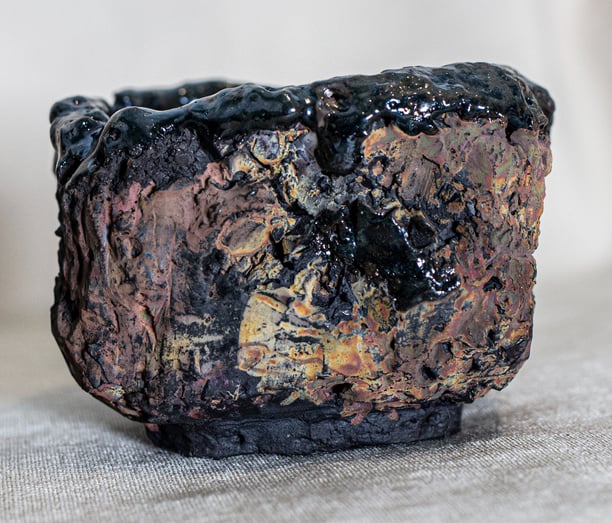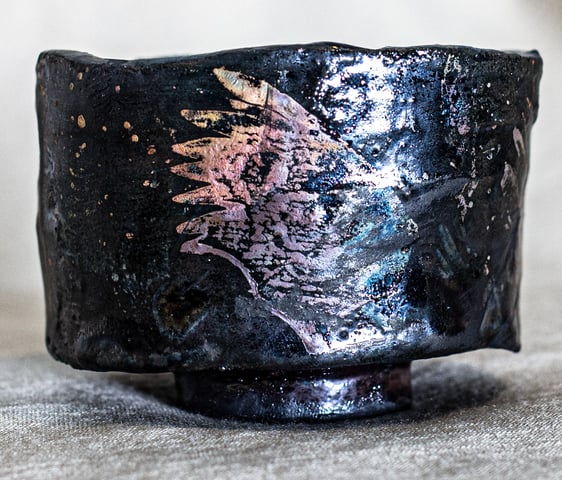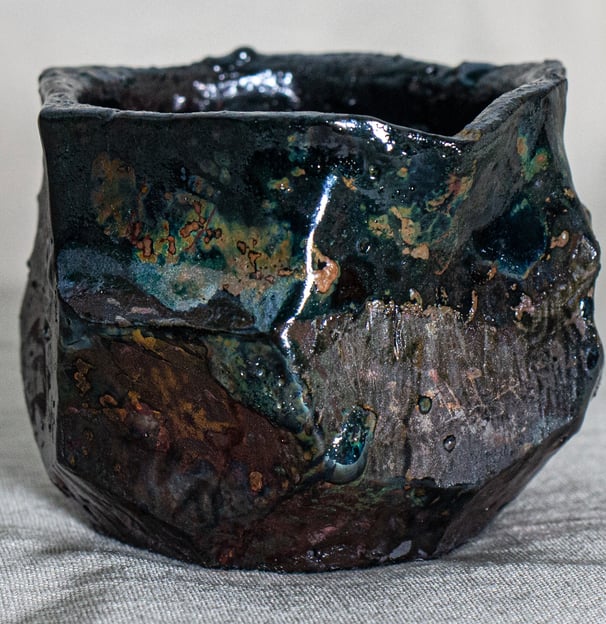Artistic Journey
My art is rooted in two ancient worlds: the rich clay traditions of Mesopotamia and the timeless philosophy of Japan.
In ancient Sumer and Babylon, clay was more than a material — it was the cradle of civilization, recording the first written words and preserving human memory.
Across the sea, ten thousand years ago, the Jomon people of Japan shaped and mended vessels with lacquer, honoring the cycles of creation, fracture, and repair.
This deep history lives in my hands.
Having spent ten years in pre-war Damascus, Syria — and living through the hardships of the civil war — I came to understand that survival is an art in itself. Clay became my refuge, my way to give form to what words could not say.
Through Kurinuki, Raku, and Kintsugi, I continue a sacred dialogue between earth and spirit, brokenness and healing.
Each vessel I shape, each golden seam I mend, speaks to resilience — to the quiet hope that beauty can be born from even the greatest scars.
My journey carries the spirit of the Sumerians who gave voice to clay, the Japanese artisans who embraced imperfection, and all those who transform pain into timeless art.


Crafting Beauty Through Imperfection
Discover the artistry of Arwa' Debaja, every piece of art is a meditation on resilience, beauty, and transformation. Through the ancient techniques of Kurinuki, Raku, Kintsugi, and traditional pottery, Arwa celebrates the philosophy of Wabi-Sabi — finding meaning and grace in the imperfect, the broken, and the incomplete. Each creation tells a story shaped by history, spirit, and the timeless dance between fire and clay.


Experience
Pottery becomes a journey of self-discovery.
Through hands-on workshops in Kurinuki, Raku, Kintsugi, and painting, participants experience the spirit of Wabi-Sabi — where every imperfection is celebrated as beauty.
Whether shaping clay for the first time or mending fractures with gold, every creation is a meditation on resilience, creativity, and timeless art.


